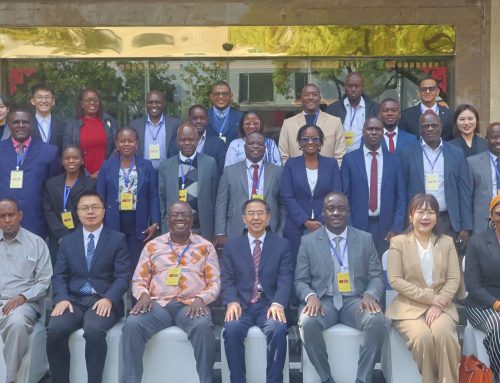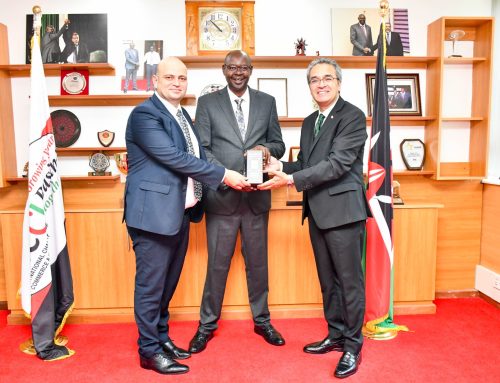The second day of the SMEs conference and Expo majorly comprised of deliberations between the private sector and the government to come up with possible solutions to solving challenges faced by the Micro, Small and Medium Enterprises (MSMEs) and tour booths of various businesses at the Conference and Expo.
The Chamber President Mr. Richard Ngatia highlighted on discussions from the 1st day of the conference, which majorly focused on challenges that SMEs in Kenya face, hindering their growth and competitiveness.
The key issues raised from the 1st day of the conference were;
- Increased importation has led to reduced demand for locally produced goods, which has negatively affected the growth of SMEs.
- Weak value chain linkages have made it difficult for SMEs to access quality and timely raw materials and therefore do not benefit from economies of scale, resulting in high production costs that make SMEs less competitive in the global market.
- The high cost of doing business in Kenya, which has made it challenging SMEs to compete with other businesses in the region. The cost regulatory compliance, energy, transport, and logistics is high, which has increased the cost of production for SMEs.
- There are currently over 10 Innovation Hubs Spread across the county- These hubs face various challenges such as Limited funding, Lack of collaboration, Inadequate infrastructure, and Limited capacity; as a result, the country has not fully utilized the opportunities presented by these organizations.
- The public tender submission process is very tedious and expensive, the manual tendering process is not only time-consuming but also very costly.
- The dispute resolution process with KRA especially when it comes to renewing tax compliance certificate is very prohibitive; especially for startups, youth and women led business that and have suffered penalties. It is very difficult for these groups to access tax compliance and resolution of minor issues takes a long time.
The chief Guest during today’s session was The Cabinet Secretary Ministry of Cooperatives & MSMEs Development Hon Simon Chelugui EGH. In his remarks he expressed his privilege to address SMEs Particularly on the government’s initiative for inclusive finance .
He acknowledged that MSMEs account for the vast majority of enterprises worldwide, making them significant contributors to job generation. A recent National Economic Survey report by Central Bank of Kenya (CBK) indicates that MSMEs constitute 98% of all business in Kenya, create 30% of the jobs annually as well as contribute 3% of GDP growth.
Given the significance of MSMEs as a source of employment , hurdles to accessing funding become obstacles of poverty reduction and economic progress. The Government of Kenya launched the Hustler fund programme to realize financial inclusion for millions of Kenyans.
In order to compliment the efforts of financial inclusion fund, there are various government initiatives that offer financing to specific sub-sectors of the MSMEs ecosystem;
The Kenya Industrial Estates provide affordable medium to long-term finance to MSMEs for the purchase of machinery, equipment and working capital
Through Uwezo Fund women, youth and persons with disabilities are able to access finances to promote businesses and enterprises at the grassroots level.
Alternative lenders such as shylocks or digital mobile lenders offer collateral free loans making them attractive to borrowers looking for quick cash and who are often locked out by banks due to prerequisites such as account history/ collateral.
He encouraged MSMEs to explore such alternative financing. He appreciated the Kenya National Chamber of Commerce & Industry , Micro and Small Enterprises Authority (MSEA) and all the other key players in taking initiative to ensuring growth of SMEs






Leave A Comment